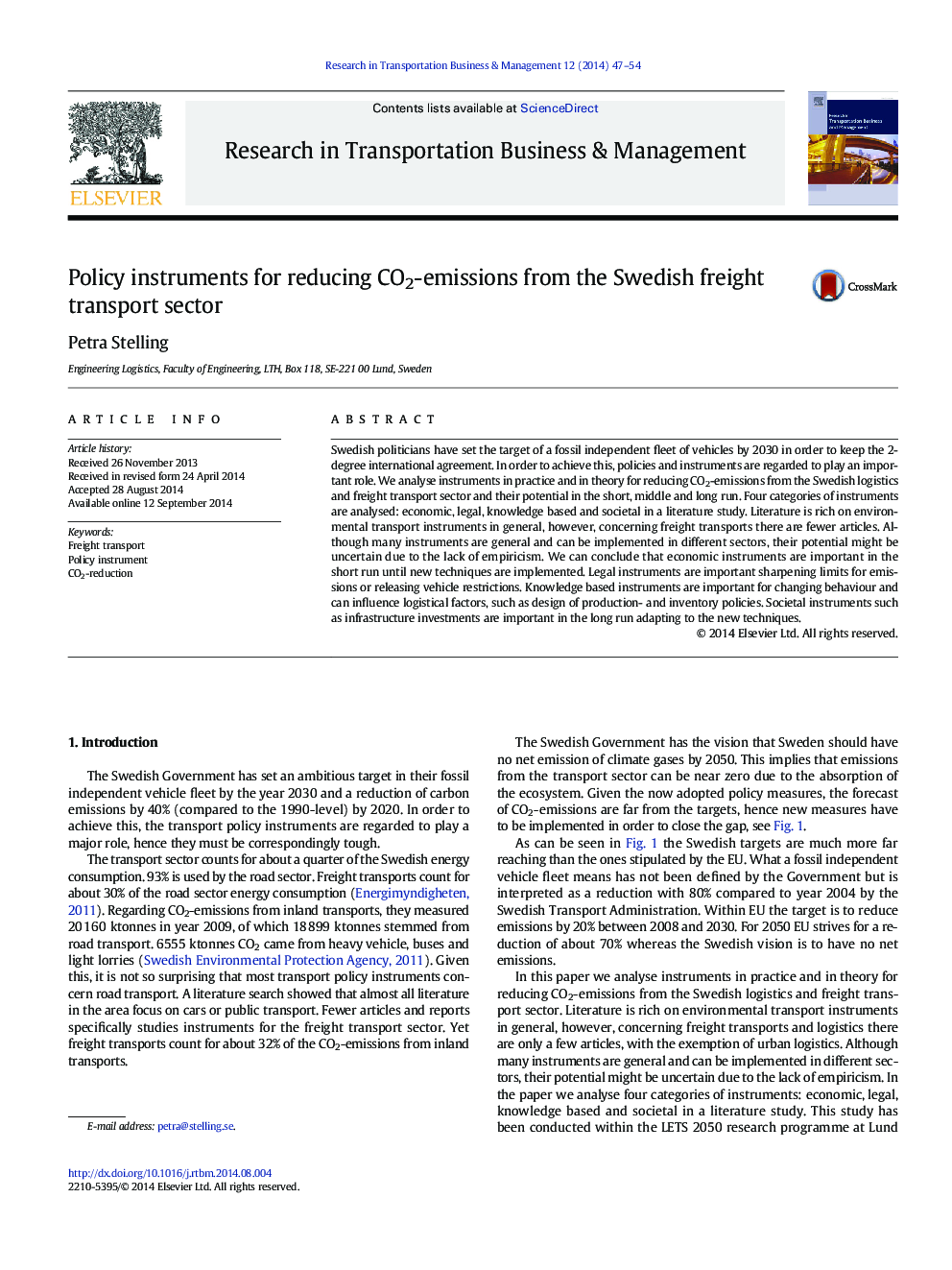| Article ID | Journal | Published Year | Pages | File Type |
|---|---|---|---|---|
| 998715 | Research in Transportation Business & Management | 2014 | 8 Pages |
Swedish politicians have set the target of a fossil independent fleet of vehicles by 2030 in order to keep the 2-degree international agreement. In order to achieve this, policies and instruments are regarded to play an important role. We analyse instruments in practice and in theory for reducing CO2-emissions from the Swedish logistics and freight transport sector and their potential in the short, middle and long run. Four categories of instruments are analysed: economic, legal, knowledge based and societal in a literature study. Literature is rich on environmental transport instruments in general, however, concerning freight transports there are fewer articles. Although many instruments are general and can be implemented in different sectors, their potential might be uncertain due to the lack of empiricism. We can conclude that economic instruments are important in the short run until new techniques are implemented. Legal instruments are important sharpening limits for emissions or releasing vehicle restrictions. Knowledge based instruments are important for changing behaviour and can influence logistical factors, such as design of production- and inventory policies. Societal instruments such as infrastructure investments are important in the long run adapting to the new techniques.
